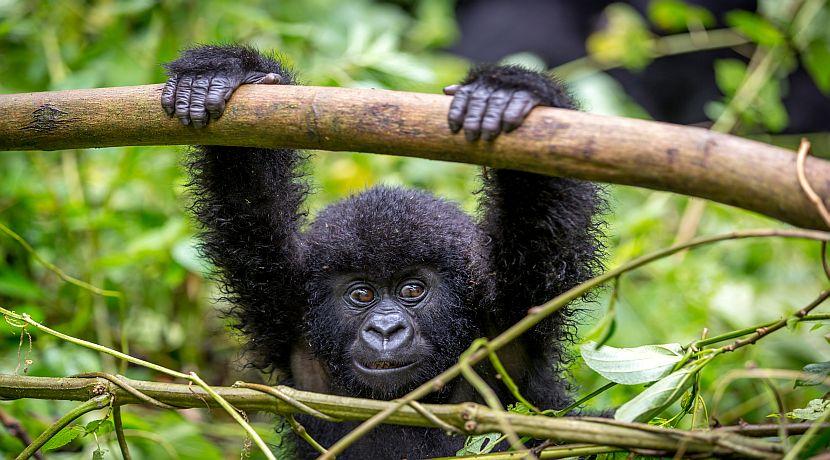Gorillas are one of the four species of Great Ape which are most closely related to humans (Chimpanzee’s, Bonobos, and Orangutans are the others), and yet we know so little about these animals with which we share 98% of our DNA. Their elusive nature means that we are still learning about the Gorilla, but one thing we do know is that they are in distinct danger of going extinct. Numbers are estimated to be as low as 100,000 in the wild, and this then poses the question of why is the happening. The answer is fourfold:

Habitat Loss
This is the main reason as to why Gorilla numbers are suffering. Currently, only 17% of the Gorilla population lives in protected regions and huge areas of the forest which the Gorillas like to call home has already been lost. These high levels of destruction are only going to continue as logging companies clear the area to provide timber to the world, and the mining, oil, and gas companies move into Gorilla territory in their never ending search for natural resources. The other issue Gorillas are facing with regards to their habitat is the local people who share the area with them cutting down trees to make way for agricultural fields and the livestock they need to make a living.
Disease
Whilst humans have discovered cures for many of the diseases which previously ailed them, Gorillas have not had this luxury and have suffered as a result. Populations of Gorillas who frequently come into contact with humans (when raiding farms for food) are particularly vulnerable to deadly respiratory infections which may be passed on to them from humans, and something which we can cure in ourselves can kill a Gorilla. The Ebola virus also had a huge effect on the worldwide Gorilla population, as back in 2003 scientists estimated that a third of the entire population of these Great Apes had been killed by it.

Hunting and Trade
In some cultures in Central Africa, Gorillas are still killed for their bush meat and this practice has increased in recent years. Gorillas are also taken from their natural homes to fuel demand in the illegal exotic pet trade which is still happening all around the world. This often results in babies being taken away from their mothers which has a huge effect on the stability of the Gorilla Troops in Africa.
Weak Law Enforcement
This ties into the hunting and trading problem mentioned above, as those who do track down and kill or capture these Great Apes are very rarely apprehended so they will continue to do it.
Gorillas are facing a lot of threats in their bid for survival but there are things you can do to help. It can be something as simple as donating to a wildlife charity or something as hands-on as volunteering on a Gorilla Conservation Project. It is up to you how you help, but the one thing that is certain is that we all need to sooner rather than later.














